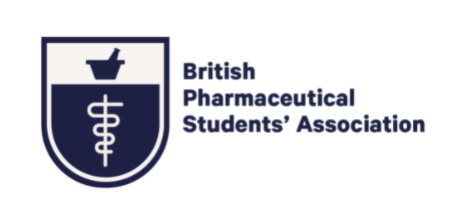Insight: NHS Digital/CPoF
Being a pharmacist wasn’t a childhood dream – I really had very little idea of what I wanted to be when I went to a careers evening prior to choosing my A-levels. At that evening, I met a pharmacist who ultimately steered the path of my life until this very moment. She did this by asking two key questions: “Do I want to help people?” and “Do I get bored easily?”.
Author: Victoria Chaplin
My career to date has reflected my liking of big changes and it has adapted as I have travelled around the various sectors of the health service. I have been fortunate enough to work in community pharmacy, hospital pharmacy, primary care, procurement, regional level medicines optimisation support and now, in a national fellowship at NHS Digital (NHSD). In addition, I have a strong interest in health economics and completed a masters whilst working in primary care, where I also became a NICE Medicines and Prescribing Associate. When listed like this, my experiences can seem almost too broad. However, by remaining true to my core skills around medicines optimisation and a desire to improve patient care, my experience of multiple sectors and organisations has allowed me to steadily build on and develop my skills as a pharmacist. The definition of what a pharmacist is and can do is ever broadening and there is not one point of learning from any previous role that I do not use now and cannot apply within the world of digital in my current position.
What is the Chief Pharmaceutical Officer’s Clinical Fellowship Scheme?
The Chief Pharmaceutical Officer’s Clinical Fellow Scheme is a unique opportunity for pharmacists. It is sponsored by Dr Keith Ridge – Chief Pharmaceutical Officer at NHS England - and managed by the Faculty of Medical Leadership and Management. The scheme provides early-career pharmacists (who have been qualified for at least four years) the unique opportunity to spend one year working with senior pharmacy leaders in national healthcare organisations. This year, there are 12 pharmacists, alongside a number of National Medical Director’s and Chief Dental Officer’s Clinical Fellows. Whilst we have different professional backgrounds and experiences, our core learning is experienced together; our development as leaders is something we are undertaking as one group of clinicians, rather than as siloed subsets of the NHS clinical workforce. As part of our wider learning, we attend training sessions on key skills such as finance and preparing business cases, communications and media and project management. We are also supported to develop soft skills and ourselves as individuals, focusing on our “brand” and our own leadership styles. Overall, the fellowship helps you understand the structure of health and social care, by exposing you to the main organisations that lead it.
Working in digital
My fellowship is based in NHS Digital – the information technology and data hub for the National Health Service and social care. Digital is a headline in most healthcare discussions right now and working at the organisation that supports all of that provides a fascinating insight into the development of healthcare and the leaders within it.
NHS Digital works with both technology and data in the NHS. I wouldn’t call myself a technophile, but the role of the clinician in these teams does not require them to have the highest digital literacy in the room. Instead, their place is to work with and support the non-clinical experts in producing products and services that are fit for purpose by healthcare professionals and patients to improve care.
Harnessing technology
The role of pharmacy in advancing technology and better use of data is huge. It is something that perhaps isn’t immediately obvious as it integrates into daily professional life, but our optimal use of it is fundamental to supporting medicines optimisation. As someone who identified strongly as technophobic prior to university, the development of my career proceeded alongside an increasing understanding and appreciation of technology. In previous roles, I led quality improvement projects that were only possible with the real-time data from electronic medicines administration systems. I also led complex projects providing workarounds for when technology just wasn’t there. Medicines lie across the whole patient pathway and enabling integration across sectors and ensuring consistency of information is a key objective. Results in this area are driven by pharmacy teams and their optimal use of technology to facilitate delivery.
Technology is not only in our hands as professionals but also in patients’. All healthcare professionals need to be able to support the use of technology as an adjunct in health prevention and treatment. A key example of this is apps, which is something I was interested in my previous regional role. My dissertation for my masters was to propose a method for modelling the economic evaluation of patient-facing apps. Now – in my current role – I work as a clinical lead in the NHS Apps Library team, supporting the inclusion of the national standards from NICE to support consistent evaluations across the wide range of health apps available. It is important in this role – and in any healthcare professional role – to not only understand how that technology fits safely and effectively into current pathways, but how it could also change and mould those pathways in the future. There is plenty to contribute as a healthcare professional and a pharmacist!
Data driven care
Whilst many pharmacists are advocates of technology in some form or another, data is something that is arguably less popular. Last year’s fellows published an excellent report on supporting early career pharmacists with data driven care. Positive changes in the approach to the use of data within everyday roles is something I sincerely support, even though it wasn’t always the top of my agenda.
Before I started working in a Clinical Commissioning Group (CCG), I didn’t think too much about “big” medicines data. Prior to that role – in the acute setting and a patient-facing role - I would consider the benefit of individual medicines to an individual person. There were formularies and guidelines in place that told me what most people “should” be taking. I read the papers about the evidence behind medicines (in specific populations) and so I knew what the expected effect was in most people. I’d then apply this to the person sat in front of me, with as much additional information as was available at the time.
The most important review that can take place for a medicine is the one with the patient, but complementary to this is the population level review. The best version of this shows what other people with that condition are actually taking and what their care looks like. Overarching all four principles of medicines optimisation, is the need to have “aligned measurement and monitoring of medicines optimisation” so use of population level medicines data is key to continually improving the quality of the healthcare we provide.
It is worth noting that pharmacists are in a privileged position to be able to harness and understand such a useful dataset to help drive improvements across healthcare; primary care medicines data is some of the most accurate health related data that we hold in the NHS. My other projects at NHSD – one based around the use and comparison of primary care medicines data and another in my clinical area of interest (diabetes) - allow me to build on that position and hopefully provide tools and information to support healthcare professionals in their use of data across the country. I have had many colleagues who say that they do not “understand” data or who say that they are not numbers-focused. Ultimately, however, the most important output from any data is the subsequent information and knowledge that comes from understanding it within the context of actual healthcare practice. Data informs everything, including planning and commissioning services, assessing the impact of policy or changes, and reviewing variation in access, utilisation and outcomes for health services. That is something that every pharmacist can contribute to and use.
Reflections
Overall, my fellowship this year is not about digital per se, but about understanding the structure and direction of the healthcare service and how I can contribute to this and provide appropriate leadership as a pharmacist within the healthcare team. Digital is fundamentally a significant part of how we will all advance as clinicians and care providers in the future. Working in this area has strengthened my preferred leadership style – a facilitator bridging a number of settings and approaches to take a vision forward. I see this as reflective of the function of technology and data.
I hope that it is clear from the above that my background is not one of a specialist “clinical informatician”, but one of a clinician who has increasingly appreciated the skills and understanding needed for technology and data in healthcare. This is something that everyone should take an interest in, as it is everyone’s business to support an increasingly integrated and data driven healthcare system. I would strongly advise all future pharmacists to be ready to ride the digital waves of technology and data throughout their career and to not view them as separate, specialist fields; they are integral parts of how you will deliver the best care now and in the future.
For more information on Vicky’s background and experiences in the fellowship, please see: www.fmlm.ac.uk/victoria-chaplin

